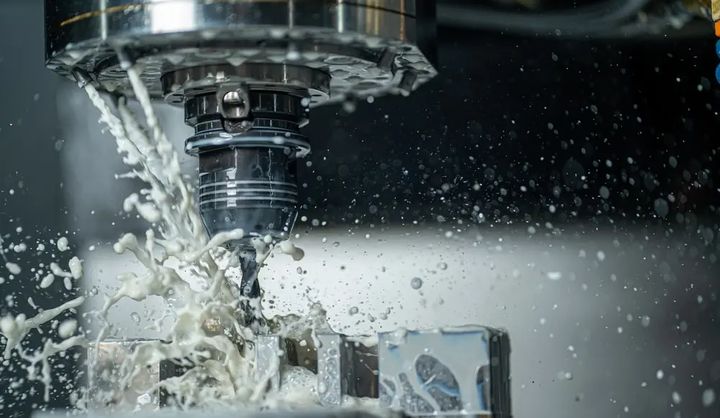Outsourcing refers to the transfer of the management and execution of business functions to a third-party service provider. CNC machining outsourcing is the practice of partnering with an outside CNC company to perform the CNC machining stages to increase efficiency. By outsourcing this task, companies can ensure significant reductions in CNC machining costs and increase productivity of CNC parts.
Outsourcing CNC machining allows you to complete the job in a short time without having to invest a lot of money in setting up the machine. It saves costs, time and increases efficiency, making it one of the best business initiatives in the contemporary era for manufacturing components with advanced capabilities. However, the success of outsourcing depends heavily on choosing the right partner and setting up an efficient collaboration. Here are some essential tips for outsourcing CNC machining services effectively.
1. Understand Your Requirements
Before starting the outsourcing process, you need to clearly define the requirements of your project. This includes:
- Material specifications: Identify the type of material your components will be made of (e.g., aluminum, stainless steel, plastic, etc.).
- Precision and tolerances:Specify the precision level and tolerances required for your parts.
- Volume of production:Clarify whether you need prototyping, small-batch production, or mass manufacturing.
- Delivery timeline:Determine the deadlines for project completion and shipping.
By having clear specifications, you can communicate your needs effectively to potential CNC machining vendors and avoid misunderstandings.
2. Research Potential Suppliers
Start by researching and creating a shortlist of CNC machining suppliers who specialize in your industry or the specific type of machining you require. Look for suppliers with a proven track record, expertise in handling your material type, and the ability to meet your precision standards.
- Check online reviews and testimonials.
- Ask for references from previous clients.
- Evaluate their certifications (e.g., ISO standards) for quality assurance.
3. Evaluate the Equipment and Capabilities
The capabilities of a CNC machining service provider heavily depend on the technology and equipment they use. When choosing a supplier, make sure they have the right machines and expertise for your needs:
- Range of services:Do they offer turning, milling, drilling, or other CNC machining processes?
- Advanced technology:Do they use modern 3-axis, 4-axis, or 5-axis CNC machines to produce complex components?
- Inspection tools:Ensure they have quality control tools such as CMM (coordinate measuring machines) for precision testing.
Additionally, check if the supplier has experience with secondary processes, such as heat treatment, anodizing, or plating, if your project requires it.

4. Assess Communication and Collaboration
Good communication is critical to successful outsourcing. Your CNC machining partner should be transparent, responsive, and willing to provide regular updates on project progress. A few things to look for:
- Technical expertise:Ensure the supplier’s engineers and technicians can understand your CAD drawings and technical requirements.
- Problem-solving ability:A good supplier will be proactive in identifying potential issues and offering solutions.
- Language and timezone considerations:If you are outsourcing to an international supplier, make sure there are no language barriers and their working hours align with your schedule.
5. Request Prototypes
Before committing to large-scale production, ask the supplier to produce a prototype. This allows you to evaluate the quality of their work and ensures that they understand your specifications.
A prototype also provides an opportunity to test the functionality and fit of your component, giving you confidence in the supplier’s ability to handle the full production run.
6. Review Cost vs. Quality
While cost is an essential factor, it should never be the sole criterion for selecting a CNC machining partner. Lower costs may come at the expense of quality, which can result in defective parts, delays, and higher long-term expenses.
- Get detailed quotes from multiple suppliers and compare.
- Look for hidden costs, such as shipping fees, taxes, or costs for additional processes.
- Focus on value rather than price; a slightly higher upfront cost can save you from expensive errors later.
7. Verify Quality Control Processes
The supplier you choose should have robust quality control processes in place to ensure every part meets your specifications. Ask about their inspection methods, certifications, and tools used for quality assurance.
Key questions to ask:
Do they inspect all parts before shipping?
- What is their defect rate?
- How do they handle quality issues or defective parts?
- A reliable partner will be open about their quality assurance practices and willing to share their inspection reports.
8. Consider Lead Times and Flexibility
Ensure the CNC machining supplier can deliver parts on time and handle changes in your order if necessary. Flexibility is crucial for businesses that operate in dynamic environments where order quantities or deadlines may shift.
Ask about their production capacity and whether they can scale production to meet sudden increases in demand.
9. Review Contracts and Agreements
Before finalizing an agreement, review the terms and conditions carefully. A well-drafted contract should include:
- Pricing structure and payment terms.
- Delivery timelines and penalties for delays.
- Ownership of intellectual property (IP) and designs.
- Confidentiality agreements to protect your proprietary information.
If necessary, involve legal experts to ensure the contract is fair and protects your interests.
10. Start with a Trial Run
If you’re unsure about committing to a long-term partnership, start with a small trial project. This gives you an opportunity to evaluate the supplier’s performance, quality, and reliability before scaling up production.
Final Thoughts
Outsourcing CNC machining can unlock significant advantages for businesses, including cost savings, access to specialized expertise, and faster production. However, choosing the right partner requires careful research and planning. By following these tips, you can find a reliable CNC machining supplier who meets your requirements and helps drive your business forward.
Whether you’re a small business looking for prototyping services or a large company outsourcing mass production, selecting the right CNC machining partner is key to achieving your goals and maintaining product quality.



